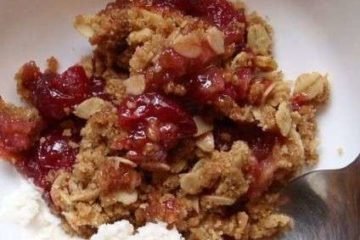Non-Alcoholic Negroni (NAgroni) Recipe
The Negroni is the quintessential aperitif, an herbal, refreshingly bittersweet, summer-in-a-glass cocktail. This non-alcoholic version is nearly every bit as satisfying as the classic, and its balance of Botanics, aromatics, and citrus is equal to the original.
How to Turn a Negroni into a NA-groni
How do you make up for the character and substance of a true London dry gin, the backbone of the classic negroni? Alcoholic drinks have a finish (or lingering after-taste) that is not easily replicated in non-alcoholic versions. A drinkable something is easy enough – and most of my attempts using light, ever-so-subtle infusions were just that – but if you want to feel you’re drinking an actual cocktail, you need to figure out that finish.
To create this non-alcohol negroni, I had to find an alternative for gin (our base spirit) that would have substance as well as a finish akin to alcohol. Our solution was to layer the restrained but resonating bitterness of Monday’s gin with the grape and fig notes of Ghia’s bittersweet aperitif.
The latter has a touch more heft and body to its taste than most of the many, many infusions available, and it complements Monday’s sophisticated, dry aromatics. From there, you just need to add some sweetness, and a sense of citrus, and you have a viable negroni. I had more than a few, in fact.
The Best NA Alcohols for This Recipe
This recipe calls for several non-alcoholic ingredients that, all together, make a fantastic drink of this.
-
- Monday’s gin alternative is our base spirit, and by far offered the best balance of taste and finish. While it would be difficult to substitute it for a “sipping gin” to drink on its own, it held up as a base surprisingly well. Its delicate bitterness and brightness provided just that necessary finish and proved adaptable to a large number of recipes.
- Ghia is our somewhat inspired choice for a Campari substitute. Its bold gentian and grape flavors, and hint (and heft) of fig, added a touch of bitterness and a considerable amount of “body” to the cocktail.
- Blutul’s Rosso (red) Vermouth and Stirrings Blood Orange Bitters both act as a sort of Greek Chorus to our base spirit and modifier, making not only palatable but sufficiently sweet the “story” told by the gin and aperitif. In this case, each is essentially vermouth, with Stirrings adding a bit of the orange you would normally get from the Campari. You could do without one or the other, if you wanted or needed to, by using 1/2 ounce more of whichever you’re keeping.
Other Ways to Use These Liquors
This gin works very well substituted into some drinks, and less so for simpler concoctions like a gimlet. You’ll have the best results building around it with delicious modifiers like berries, sweetened ginger syrup, or other alternative vermouths.







